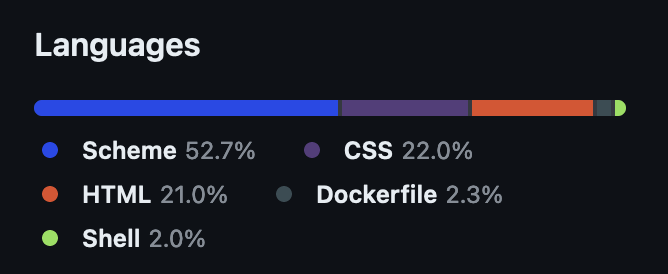Every respectable tech blog must contain two posts:
- ”This site now has RSS”
- ”This is how this site is deployed”
Other content is optional.
Writing on the go
Content updates go like this:
- I write Markdown in a special directory in my Obsidian Vault
- The change is synced to my Digital Ocean server via Obsidian Sync (I run an Obsidian process on my server)
- A file system monitor script picks it up and runs a build script
- Built HTML files are served with Nginx
This process gives me full control over the content wherever I have access to Obsidian. Making writing as easy as possible is the principle behind this design.
This is considered a good idea in the frog community.
Making changes to the build process itself, or the HTML template, requires a computer, however.
Parentheses
Most of the heavy lifting is done by pandoc. The
glue parts use an obscure and ancient language with many curved
sigils. Give it a try.

Hosting
My small Digital Ocean server also moonlights as a container
image registry. I build the scripts into an OCI image, push it on
the server and run it with docker-compose. Don’t
over-engineer when you want things done.
